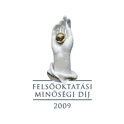 Erasmus Programme
Erasmus Programme
 Courses and Timetables
Courses and Timetables
 Autumn
Autumn
Economic Fundamentals of European Integration
Welcome ― Courses and Timetables ― Contacts ― Galleries and Films ― Partners
| MA Course title: ECONOMIC FUNDAMENTALS OF EUROPEAN INTEGRATION | Credit: 5 |
| Contact hours / week: 2 | |
| Course description: | |
|
Objective of course: The course introduces students the economic aspects of European integration. It gives a timely and a thematic overview of the major milestones and areas of economic integration. In our days, when European integration is facing the largest crisis ever, a crisis that is economic in nature and by now threatens one of the greatest achievements of integration, namely the euro, the apprehension of the contents of the course may provide significant assistant to the students in their basic understanding of the functioning of the European Union. Course topics: Introduction, basic concepts. The levels of economic integration: bilateral trade agreement, multilateral trade agreement, free trade area, customs union, common market, the single European market, the economic and monetary union, political union / federalism. The steps of the European economic integration: Treaty of Rome (1957), customs union (1968), White Book on the Single European Market (1985) and the Single European Act (1986). Launch of the Single European Market (1993). Preparation for the common currency (1990-1999), the European Economic and Monetary Union since 1999. The impact of the global financial and economic crisis on the EU and the Eurozone: European recovery plan, ESM, EFSF, European semester. The European Central Bank in the management of the Eurozone crisis. The banking union. Competition regulation in the single European market: restrictive agreements, dominant position, concentration of undertakings, state aid. The liberalisation process. The financial and economic crisis and competition policy: temporary framework vs. state aid reform. Services of general economic interest (SGEIs). The common trade policy: schemes, system of preferences, the Community Customs Code, the functioning of the customs union. Main trading partners. The EU as a single negotiating partner in the GATT/WTO. The impact of the GATT/WTO agreements on the development of the common trade policy. Teaching methods: The basic teaching method is lecturing, combined with various in-class assignments and occasional home works. All topics are reviewed with the help of series of questions closing the respective chapters of the teaching material. Exam is based on these questions. |
|
| Literature: | |
|
Pelle, A. (2013): The Economic Fundamentals of European Integration. 2nd edition. University of Szeged. |
|



